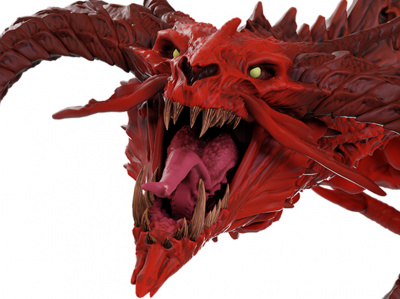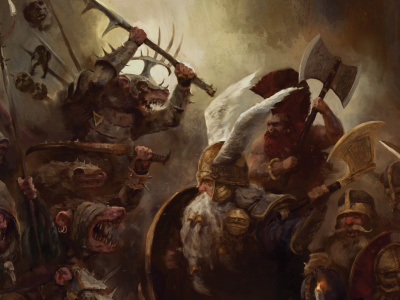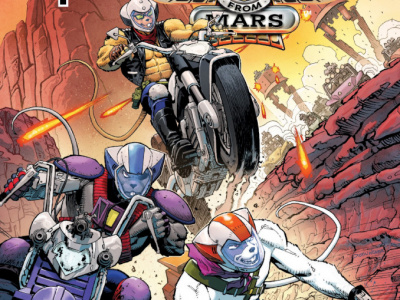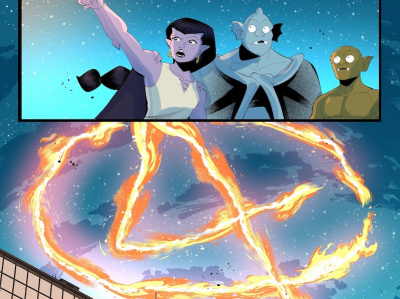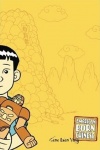
First Second's American Born Chinese, by Gene Luen Yang, was the first graphic novel ever nominated for a National Book Award (see 'American Born Chinese'). It didn't win, but at the awards ceremony, the winner in its category (young people's literature), M.T. Anderson noted the significance of the nomination. 'There is a lot of dithering in the blogosphere,' he said, 'about whether graphic novels are worthy. This can now be laid to rest.'
We spoke to First Second Editorial Director Mark Siegel about the significance of the nomination and its impact on sales.
First Second's American Born Chinese was nominated for the prestigious National Book Award. How are sales on that book, and how have sales been influenced by that nomination publicity?
I was told when it was nominated for a National Book Award that this was really great for prestige but it doesn't always show up in sales. Some publishers who actually won the award in the past said it was great in many ways and ended up driving sales through other channels. For us, we went straight to reprints before knowing the demand.
How many have copies of American Born Chinese have you printed to date?
We'll be going to our third printing very shortly. The first printing was 16,000 before the nomination, and I think it was 9,000 or 10,000 for the next printing.
So up over 25,000?
Yes, but I think it's small for the lifetime of this book; it'll be a drop in the bucket. Before Chinese Born American started leading, Sardine in Outer Space was leading our sales, which to me is very interesting because it's mainly 8 to10 year old girls that we're hearing from. But they were all out of the box pretty quickly.
The first list [of First Second graphic novels] that came out in May went to reprint before the release dates on all six titles. And it's something pretty similar with the second list. But obviously American Born broke away from the pack because of the National Book Award nomination. So right now the back orders are going into negative, which is all good news. We're happy with it. I'm feeling that I'm building a collection [that will create a strong backlist]. People don't talk that much about backlist anymore in publishing, like it's an antiquated thing, but that's certainly not the case with us and I think for graphic novels in general. One of the things the big publishing houses have discovered over time is the backlist of a good graphic novel will just go on and on and on.
With Watchmen--after 20 years -- as the archetypical example.
Yes. I've been going at this with a long-view approach, but also obviously keen for a breakaway hit. With something like American Born Chinese we've just begun to see its career out into the world.
With the second printing, there should be some copies available at retail for the holidays?
There are copies in stock around the place and there's also the Collector's Edition which some people are going to as a second option.
What's the Collector's Edition?
We have a hard cover, a really nice bookmark and these cloth corners and an embossed cloth spine. It's in a classy package and we've been testing that out with a couple of books every season. It's usually a print run of about 2,000 for the diehards.
Which titles have you done Collectors Editions for?
We did Eddie Campbell: Fate of the Artist, The Lost Colony, Klezmer by Joann Sfar and American Born Chinese. With the exception of The Lost Colony, which is by a newcomer, they're typically for when we have an author that has a following already. So we provide something for that crowd. I would love to do those for all our books, actually. I'm hoping that it works as a model because they look really nice, they feel nice.
Have you scheduled a third printing?
I don't know if it's scheduled, but it's going to be happening.
Can you comment on the significance of the American Born Chinese National Book Award nomination for the graphic novel category?
In some ways the jury was very bold; they were breaking with tradition. It's the first time a graphic novel has been nominated in the award's 57-year history. But it's also very current with our times -- in some ways, it makes sense and I do hope we're going to see more of that sort of thing. We're seeing it in smaller ways. This is a glamorous and one of the most prestigious places this could happen, but we're also seeing it in these '100 Best Books of the Year,' 'Best Fiction of the Year' and other lists that you see in the various trade journals that, as a matter of course, are incorporating graphic novels even when they don't have a graphic novel category.
The National Book Award is a very visible symptom of the times we're in. The comics medium, the graphic novel, has really passed a certain point of no return in terms of entering into the mainstream consciousness, the mainstream reader world. I think this is very healthy, and what I think it means is that the books themselves are going to held to the same standard as other books, and the authors will be held to certain standards just like other authors. Granted, there are some very fundamental differences in the outer form, but it is storytelling, mostly narrative of some kind, and the high standards apply.
It was lovely that the winner of The National Book Award's Young People's Literature category, M.T. Anderson, started by saying how proud he was that a graphic novel was nominated. And many of the fiction and young adult authors out there really are champions of graphic novels. They read them, their kids read them, their readers read them, and many of them are very interested in working on graphic novel scripts. I just signed up Jane Yolen, I have people like Adam Rapp, who's both a playwright and a YA novelist, and they're very keen to be working this field. I see it as a whole big picture of things happening and The National Book Award is a lovely, unexpected example of the times we're in.
You mentioned that American Born Chinese showed up on some other lists?
Yes, it was on PW's list of the best books of the year. It was #1 on the Amazon.com graphic novels of the year. Still on Amazon, it was #23 on the best fiction of the year, #8 in best teen book of the year. School Library Journal named it as one of the best books of the year on its list. Booklist made it an Editor's Choice book. It was a San Francisco Chronicle best book of the year. NPR made it one of its holiday picks (it was great because there were only two graphic novels on the list, and they were both First Second titles--Kampung Boy was the other one). So there's a whole smattering of things. It's still finding its way into all the different circles, which is good.
One of the dreams behind First Second is to be promoting the kind of graphic novel that speaks to people whether they think of themselves as graphic novel readers or not. This is a great way to break us out into a broader audience.



